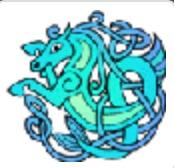- Posts: 4316
- Thank you received: 30
A discussion on Pain
- HEARTLESS
-

- User is blocked
-

The silent majority will be silent no more.
Please Log in or Create an account to join the conversation.
- navycpo7
-

- Mountain Legend
-

- Posts: 2093
- Thank you received: 26
Please Log in or Create an account to join the conversation.
- Rockdoc
-
 Topic Author
Topic Author
- Mountain Legend
-

Neither lethargic or lack of will, simply unfeeling.major bean wrote:
If by "numb" you mean lethargic or lack of will then it is the result of depression.Rockdoc Franz wrote: Here is another question for you. How can a being be numb and full of pain at the same time?
Please Log in or Create an account to join the conversation.
- Rockdoc
-
 Topic Author
Topic Author
- Mountain Legend
-

navycpo7 wrote: I live with pain everyday, I know when I get up in the morning it is going to be there. I have two choices. Take the pills which only takes the edge off, or as I usually do, I ingore it, and get on with my day. I refuse to allow it to run my life. Its a choice you have to make. There are other factors involved in that also.
Understood. We are talking bout physical pain. People vary in their ability to cope with physical pain, My earlier reference to being numb wile full of pain tries to address not so much physical pain as emotional pain. As I think about this we may be talking about emotional or physical pain that is so intense that it goes beyond the pain registers we use to access it. Could it be that our mind or body has a way of leaving us feeling numb when the intensity of pain could be damaging us in ways that leave us incapacitated beyond the pain inflicted emotional or physical wounds? Such a "numbing ability" may have proven especially useful for survival during early stages of our evolution. Why? Intense pain can be debilitating in many, but if the body can find a way of rendering us numb, it still allows us to function despite of our pain.
Please Log in or Create an account to join the conversation.
- Rockdoc
-
 Topic Author
Topic Author
- Mountain Legend
-

HEARTLESS wrote: I think there are two distinct types of pain. The first, pain from exertion or working hard is good pain, hence no pain, no gain. The second, pain from illness, accident or damage is bad pain. This pain tells you something is very wrong. Pain from suffering is part of the second type to me.
Both are a type of physical pain. I bet you have also experienced emotional pain. How would you fit that into your pain types?
Please Log in or Create an account to join the conversation.
- ComputerBreath
-

- Mountain Legend
-

- Posts: 1208
- Thank you received: 20
I call emotional pain "sadness"...that is what I was taught. And because sadness falls into the category of emotion, I do not equate it with "good" or "bad". It just is. However, if sadness is the primary emotion felt at all times, this could lead to emotional and social problems for the individual feeling it.
Physical pain in my mind is the way the physical body tells an individual that something may be wrong with wherever the pain is coming from. I have Carpal Tunnel Syndrome (I think in some places it is being referred to as Repetitive Motion Disease) in my right wrist and have had it since 1994. I have a tendency to ignore the pain and push through it, which isn't good because if my nerve gets to the point where it is seriously impinged, there could be worse problems then just pain...
So, I believe pain is necessary to knowing oneself, emotionally, physically, and spiritually and in taking care of oneself and asking for help, if needed.
Please Log in or Create an account to join the conversation.
- Rockdoc
-
 Topic Author
Topic Author
- Mountain Legend
-

ComputerBreath wrote: Doc: I absolutely think the body and mind have mechanisms in place to "numb" the pain if the individual feeling it doesn't deal with it in whatever way is possible. These "numbings" come in many flavors: Depression, suicide, drug and/or alcohol abuse/use, anger, tears, obesity, the opposite of obesity, and I know there are many other numbings.
I call emotional pain "sadness"...that is what I was taught. And because sadness falls into the category of emotion, I do not equate it with "good" or "bad". It just is. However, if sadness is the primary emotion felt at all times, this could lead to emotional and social problems for the individual feeling it.
Physical pain in my mind is the way the physical body tells an individual that something may be wrong with wherever the pain is coming from. I have Carpal Tunnel Syndrome (I think in some places it is being referred to as Repetitive Motion Disease) in my right wrist and have had it since 1994. I have a tendency to ignore the pain and push through it, which isn't good because if my nerve gets to the point where it is seriously impinged, there could be worse problems then just pain...
So, I believe pain is necessary to knowing oneself, emotionally, physically, and spiritually and in taking care of oneself and asking for help, if needed.
In this view pain is the teacher. As with everything in life, one needs to be receptive to the message sent or one learns little or nothing. Perhaps the evolution of pain is very much the stick that causes or is supposed to make us listen and learn? I'm reminded of "Needing a 2x4 between the eyes before learning" Certainly, such abuse causes pain that is difficult to ignore. I'm certainly learning here. Thanks for all the thoughts and views shared.
We know there is "sharp" pain and "dull" pain. Do these different kinds of pain have different functions and why? Sharp pain certainly grabs my attention, demanding that I take note of the problem. Dull pain is easier to live with and ignore. Some of us learn more quickly than others because we listen to our bodies. Is dull pain the kind of message sent with the notion that we take heed because we ought to be listening to what our body is trying to tell us. Thus sharp pain could be viewed as the 2x4 between the eyes for the slow learner?
Please Log in or Create an account to join the conversation.
- ScienceChic
-

- Mountain Champion
-

- Posts: 15746
- Thank you received: 320
In psychological circles, it's known as dissociation. Also known as "leaving one's body/checking out" - a common result of trauma. From Waking The Tiger: Healing Trauma by Peter Levine: "In trauma, dissociation seems to be a favored means of enabling a person to endure experiences that are at the moment beyond endurance-like being attacked by a lion, a rapist, an oncoming car, or a surgeon's knife. Dissociation can become chronic and evolve into more complex symptoms when the hyperaroused energy is not discharged." Whereas a normal healthy person, when confronted with those situations above, will fight or flee, or rationally understand that surgery is necessary for health and let go of fear, a person who hasn't appropriately dealt with previous trauma tends to fall back into dissociation and will "check out" and not feel a thing, emotionally and even physically. Problem is, they still suffer yet another traumatic event that they don't appropriately deal with and the problem becomes compounded. Dissociation allows a person to "get through" one traumatic event and, hopefully, survive to (from an evolutionary standpoint) reproduce and nurture one's offspring - it doesn't help the person heal psychologically (which back when we were first evolving wasn't a consideration - survival was, which is why it was selected for as a method to improve survival odds. Now that the daily fight for survival is moot for a big portion of our species, it has become an easy route for pathological development. Good news for those who desire a career in psychology, not so helpful for the rest of us).Rockdoc Franz wrote: My earlier reference to being numb wile full of pain tries to address not so much physical pain as emotional pain. As I think about this we may be talking about emotional or physical pain that is so intense that it goes beyond the pain registers we use to access it. Could it be that our mind or body has a way of leaving us feeling numb when the intensity of pain could be damaging us in ways that leave us incapacitated beyond the pain inflicted emotional or physical wounds? Such a "numbing ability" may have proven especially useful for survival during early stages of our evolution. Why? Intense pain can be debilitating in many, but if the body can find a way of rendering us numb, it still allows us to function despite of our pain.
You've pretty much summed it up accurately. Sharp pain is the initial wake-up call, and it fades to dull pain over time. The pain receptors aren't meant to keep firing at high frequencies for long periods of time - they become exhausted and must recharge.We know there is "sharp" pain and "dull" pain. Do these different kinds of pain have different functions and why? Sharp pain certainly grabs my attention, demanding that I take note of the problem. Dull pain is easier to live with and ignore. Some of us learn more quickly than others because we listen to our bodies. Is dull pain the kind of message sent with the notion that we take heed because we ought to be listening to what our body is trying to tell us. Thus sharp pain could be viewed as the 2x4 between the eyes for the slow learner?
The exception being internal problems, as there aren't pain receptors that monitor most of the internal organs closely (the heart and stomach being two obvious exceptions) - problems will be noticed with increased discomfort reported by mechanoreceptors (like when a tumor is growing in the abdomen and gets big enough to stretch the wrong adjacent tissues). Mechanoreceptors can double as pain receptors, but have higher pain activation limits than dedicated pain receptors since normal pressure shouldn't be pathological or painful.
Noticing pain is very much tied to how in tune with your own body you are, or aren't, as CB stated. This is one of the great benefits of meditation, yoga, pilates, T'ai Chi, etc. Practicing the art of being still and listening to your body, its internal and external physical sensations, where emotions are physically felt, and learning how to respond to and regulate one's own systems takes some concentration and dedication. The rewards are so worth it though!
"Now, more than ever, the illusions of division threaten our very existence. We all know the truth: more connects us than separates us. But in times of crisis the wise build bridges, while the foolish build barriers. We must find a way to look after one another as if we were one single tribe.” -King T'Challa, Black Panther
The truth is incontrovertible. Malice may attack it. ignorance may deride it, but in the end, there it is. ~Winston Churchill
Please Log in or Create an account to join the conversation.
- Rockdoc
-
 Topic Author
Topic Author
- Mountain Legend
-

Science Chic wrote:
In psychological circles, it's known as dissociation. Also known as "leaving one's body/checking out" - a common result of trauma. From Waking The Tiger: Healing Trauma by Peter Levine: "In trauma, dissociation seems to be a favored means of enabling a person to endure experiences that are at the moment beyond endurance-like being attacked by a lion, a rapist, an oncoming car, or a surgeon's knife. Dissociation can become chronic and evolve into more complex symptoms when the hyperaroused energy is not discharged." Whereas a normal healthy person, when confronted with those situations above, will fight or flee, or rationally understand that surgery is necessary for health and let go of fear, a person who hasn't appropriately dealt with previous trauma tends to fall back into dissociation and will "check out" and not feel a thing, emotionally and even physically. Problem is, they still suffer yet another traumatic event that they don't appropriately deal with and the problem becomes compounded. Dissociation allows a person to "get through" one traumatic event and, hopefully, survive to (from an evolutionary standpoint) reproduce and nurture one's offspring - it doesn't help the person heal psychologically (which back when we were first evolving wasn't a consideration - survival was, which is why it was selected for as a method to improve survival odds. Now that the daily fight for survival is moot for a big portion of our species, it has become an easy route for pathological development. Good news for those who desire a career in psychology, not so helpful for the rest of us).Rockdoc Franz wrote: My earlier reference to being numb wile full of pain tries to address not so much physical pain as emotional pain. As I think about this we may be talking about emotional or physical pain that is so intense that it goes beyond the pain registers we use to access it. Could it be that our mind or body has a way of leaving us feeling numb when the intensity of pain could be damaging us in ways that leave us incapacitated beyond the pain inflicted emotional or physical wounds? Such a "numbing ability" may have proven especially useful for survival during early stages of our evolution. Why? Intense pain can be debilitating in many, but if the body can find a way of rendering us numb, it still allows us to function despite of our pain.
You've pretty much summed it up accurately. Sharp pain is the initial wake-up call, and it fades to dull pain over time. The pain receptors aren't meant to keep firing at high frequencies for long periods of time - they become exhausted and must recharge.We know there is "sharp" pain and "dull" pain. Do these different kinds of pain have different functions and why? Sharp pain certainly grabs my attention, demanding that I take note of the problem. Dull pain is easier to live with and ignore. Some of us learn more quickly than others because we listen to our bodies. Is dull pain the kind of message sent with the notion that we take heed because we ought to be listening to what our body is trying to tell us. Thus sharp pain could be viewed as the 2x4 between the eyes for the slow learner?
The exception being internal problems, as there aren't pain receptors that monitor most of the internal organs closely (the heart and stomach being two obvious exceptions) - problems will be noticed with increased discomfort reported by mechanoreceptors (like when a tumor is growing in the abdomen and gets big enough to stretch the wrong adjacent tissues). Mechanoreceptors can double as pain receptors, but have higher pain activation limits than dedicated pain receptors since normal pressure shouldn't be pathological or painful.
Noticing pain is very much tied to how in tune with your own body you are, or aren't, as CB stated. This is one of the great benefits of meditation, yoga, pilates, T'ai Chi, etc. Practicing the art of being still and listening to your body, its internal and external physical sensations, where emotions are physically felt, and learning how to respond to and regulate one's own systems takes some concentration and dedication. The rewards are so worth it though!
Thanks for that informative post SC. I certainly was unaware of the distribution of pain receptors in the body.
On the subject of listening to your body (and then ignoring what it's telling you) I have a personal story. Training for a my first marathon, I worked up from no running to 50 miles per week over a period of 8 months. Along the way I progressively became more aware of what my body was trying to tell me but driven by achieving my goal ignored it. I developed achilles tendonitis in both feet only a month or so before my debut. Discovering that my pain subsided after a mile or so, I continued to run and then limp throughout the day after my runs. So, the rewards of learning to listen to my body are a skill that helps me today, but fell on unwilling ears years ago.
Please Log in or Create an account to join the conversation.
- ScienceChic
-

- Mountain Champion
-

- Posts: 15746
- Thank you received: 320
You're most welcome! Wikipedia has a nice basic overview of nociceptors: http://en.wikipedia.org/wiki/NociceptorRockdoc Franz wrote: Thanks for that informative post SC. I certainly was unaware of the distribution of pain receptors in the body.
On the subject of listening to your body (and then ignoring what it's telling you) I have a personal story. Training for a my first marathon, I worked up from no running to 50 miles per week over a period of 8 months. Along the way I progressively became more aware of what my body was trying to tell me but driven by achieving my goal ignored it. I developed achilles tendonitis in both feet only a month or so before my debut. Discovering that my pain subsided after a mile or so, I continued to run and then limp throughout the day after my runs. So, the rewards of learning to listen to my body are a skill that helps me today, but fell on unwilling ears years ago.
I used to study the capsaicin receptor (now called TrpV1) when I worked in the Anesthesiology Dept at UCSF. My hubby liked to joke that I used him as my experimental guinea pig for pain research!
Achilles tendonitis - ouch. I pulled one of mine in high school running track and developed a healthy respect for that little muscle, with not being able to traverse stairways well, thanks to that. Marathons are a whole 'nother game - good for you to do that much! Listening to our bodies is something that seems to come with age and experience. I certainly wish I had started listening at a younger age and was better at it today than I am.
"Now, more than ever, the illusions of division threaten our very existence. We all know the truth: more connects us than separates us. But in times of crisis the wise build bridges, while the foolish build barriers. We must find a way to look after one another as if we were one single tribe.” -King T'Challa, Black Panther
The truth is incontrovertible. Malice may attack it. ignorance may deride it, but in the end, there it is. ~Winston Churchill
Please Log in or Create an account to join the conversation.







